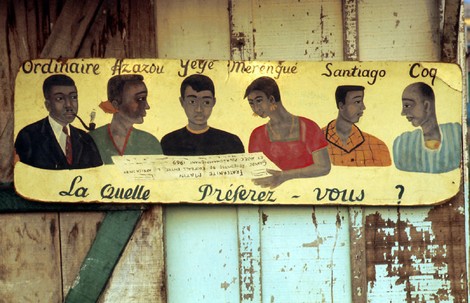Your podcast discovery platform
Curious minds select the most fascinating podcasts from around the world. Discover hand-piqd audio recommendations on your favorite topics.

piqer for: Global finds
Ciku Kimeria is a Kenyan author "Of goats and poisoned oranges" - (https://www.amazon.com/goats-poisoned-oranges-Ciku-Kimeria-ebook/dp/B00HBBWPI6), development consultant, adventurer and travel blogger (www.thekenyanexplorer.com). She writes both fiction and non-fiction focusing on African stories that need telling. She has worked on diverse pieces for various international and local publications including Quartz, Ozy, The East African etc. She has travelled to 45 countries – 16 of them in Africa. 153 countries to go and 63 territories!
"Of goats and poisoned oranges" has been extremely well received in Kenya and beyond. It tells the story of a Kenyan middle aged power couple and their complicated marriage. The novel explores issues of greed, revenge, betrayal and murder. It runs from the 1960s to 2013. It has been described as “Wicked, funny, poignant, wacky, human, a big ball of fun and danger”, “A unique and captivating book”, “Fun and intriguing”, “Impossible to put down once you start reading.”
She recently moved to Dakar, Senegal from Kenya to work on her second novel. She also works at as the Africa Communication Manager at a leading global strategy consulting firm.
She holds a B.S. in Management Science from MIT with minors in Urban Planning and International development studies.
What Really Is "African Literature" And Who Is Its Intended Audience?
The term "African literature" comes loaded with so many expectations. Does African literature always have to be on serious issues or, in the words of Kenyan filmmaker Wanuri Kahiu, can African art simply be? Afrobubblegum she calls it. Why is African literature held to a different standard than literature from other parts of the world?
Though this article by 2015 Caine Prize winner Namwali Serpell is on glossaries in African literature, it also touches on what Africans are expected to write and who they are expected to write it for.
There’s a part of me that just deeply resents the fact that there’re many parts of the world where the fiction that comes from there is read as anthropology rather than as literature. And increasingly that kind of anthropological reading then means that … you’re explaining your world rather than inhabiting your world.
As an African novelist myself, it's something I grapple with all the time. I have already dealt with the first struggle—What should an African write about? This particular African is writing about whatever stories come into her mind. At the moment that tends to be murder mysteries set in contemporary Africa. The other challenge is Who am I writing for and how much do I have to explain my world?
When I wrote my first novel, Of goats and poisoned oranges, I felt that I had to explain everything that was unique to the Kenyan context (in the form of endnotes). Now I realize that the work of a writer is not to explain everything they write about, but rather to draw the reader into a world where it really doesn't matter if some words and phrases are not understood, that the story in itself draws the reader. I read widely and I have noticed that elaborate explanations of foreign dishes, concepts, phrases do not in any way enrich my reading experience. I have to connect with the story rather than understand everything that is being said.
My main interest now is in keeping it real in my stories and not glossing Africa.
